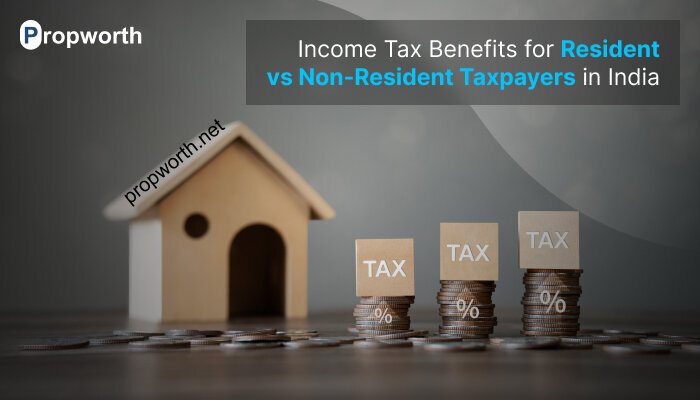The Union Budget 2024 presented by Finance Minister Nirmala Sitharaman has brought about several changes to the income tax structure in India. One of the key highlights of this budget is the introduction of lower tax rates for individuals earning up to ₹5 lakh per annum. In this article, we will take a closer look at how these changes will impact your income tax liability if you fall within this income bracket.
Changes to Income Tax Slabs
Under the new tax regime, the income tax slabs have been revised to provide relief to those earning a modest income. The new tax slabs are as follows:
- Nil tax for incomes up to ₹3 lakh
- 0% tax for incomes between ₹3 lakh and ₹7 lakh, provided certain conditions are met
- 5% tax for incomes between ₹7 lakh and ₹10 lakh
- 10% tax for incomes between ₹10 lakh and ₹12 lakh
- 15% tax for incomes between ₹12 lakh and ₹15 lakh
- 20% tax for incomes between ₹15 lakh and ₹20 lakh
- 30% tax for incomes above ₹20 lakh
As you can see, the tax rate for incomes between ₹3 lakh and ₹7 lakh has been expanded, and the tax rate remains nil for incomes up to ₹3 lakh. This means that if you earn ₹5 lakh per annum, you will not have to pay any income tax, as long as you meet the conditions specified in the budget speech.
No tax liability for incomes up to ₹3 lakh
As mentioned earlier, the basic exemption limit has been increased from ₹2.5 lakh to ₹3 lakh. This means that if you earn less than ₹3 lakh per annum, you will not have to pay any income tax. For example, if you earn ₹2.75 lakh per annum, you will not have to pay any income tax.
Lower tax rate for incomes between ₹3 lakh and ₹7 lakh
For incomes between ₹3 lakh and ₹7 lakh, the tax rate has been reduced from 5% to 0%, as long as certain conditions are met. For example, if you earn ₹5 lakh per annum, you will not have to pay any income tax. However, if you earn ₹6.5 lakh per annum, you will still have to pay 0% tax, as long as you meet the conditions specified in the budget speech.
Standard Deduction Increase
The standard deduction has been increased from ₹50,000 to ₹75,000. This means that salaried individuals and pensioners can deduct a fixed amount of ₹75,000 from their gross income before arriving at their taxable income. For example, if you earn ₹5 lakh per annum and have a standard deduction of ₹75,000, your taxable income will be ₹4.25 lakh.
Family Pension Deduction Increase
The deduction for family pension has been increased from ₹15,000 to ₹25,000. This means that pensioners who receive a family pension can deduct a fixed amount of ₹25,000 from their gross income before arriving at their taxable income. For example, if you are a pensioner and receive a family pension of ₹20,000 per month, your taxable income will be reduced by ₹25,000, resulting in a lower tax liability.
Impact on Revenue
The finance minister announced that the government will forgo a revenue of ₹7,000 crore due to the changes in the income tax regime. However, the government believes that these changes will help to reduce disputes and litigation, making the tax system more efficient and transparent.
Simplification of the Income Tax Act
The finance minister also announced that the government will review and simplify the Income Tax Act, 1961. The objective of this review is to reduce disputes and litigation, making the tax system more user-friendly and efficient. The review is proposed to be completed within 6 months.
Revenue forgone
The finance minister announced that the government will forgo a revenue of ₹7,000 crore due to the changes in the income tax regime. This means that the government expects to collect less revenue from income tax due to the changes in the tax slabs and other provisions. However, the government believes that the changes will help to reduce disputes and litigation, making the tax system more efficient and transparent.
Here are a few more points to help explain some of the changes in the Union Budget 2024:
- Tax exemptions: The budget has also introduced new tax exemptions for certain categories of income. For example, interest earned on savings accounts and post office deposits up to ₹75,000 per annum is now tax-free. Additionally, there is a tax exemption for the first ₹50,000 of income earned through a new pension scheme.
- Tax credits: The budget has also introduced new tax credits for certain expenses. For example, individuals can now claim a tax credit of ₹5,000 for spending on health and wellness products, such as fitness equipment and gym memberships. There is also a tax credit of ₹2,500 for spending on digital payments, such as mobile wallets and UPI transactions.
- Tax deduction for charitable donations: The budget has increased the tax deduction for charitable donations from 50% to 100% of the amount donated. This is a welcome move for individuals who are looking to support charitable causes.
- Simplification of tax filing process: The budget has proposed to simplify the tax filing process, making it easier for individuals to file their taxes online. The government is also exploring the possibility of introducing a simplified tax return form for individuals with income up to ₹50 lakh per annum.
Here’s an example to illustrate how the new tax regime will impact an individual earning ₹5 lakh per annum:
Let’s say that you earn ₹5 lakh per annum and you have no other sources of income. Under the old tax regime, you would have been liable to pay income tax of ₹10,000, as per the table provided in the article. However, under the new tax regime, you will not have to pay any income tax, as long as you meet the conditions specified in the budget speech. This is because the tax rate for incomes up to ₹7 lakh has been reduced to 0%, provided certain conditions are met.
Additionally, with the increase in standard deduction from ₹50,000 to ₹75,000, your taxable income will be reduced by a further ₹25,000. This means that your taxable income will be ₹4.75 lakh and your income tax liability will be ₹0.
Overall, these changes are a welcome move for individuals earning up to ₹5 lakh per annum, as they provide much-needed relief and simplify the tax filing process.
Conclusion
In conclusion, the Union Budget 2024 has brought about significant changes to the income tax structure in India, particularly for individuals earning up to ₹5 lakh per annum. With a nil tax rate for incomes up to ₹3 lakh and a reduced tax rate for incomes between ₹3 lakh and ₹7 lakh, this budget provides much-needed relief to the middle class. The increase in standard deduction and family pension deduction will also result in a higher take-home salary for individuals in this income bracket. Overall, these changes are a step in the right direction towards a more equitable and efficient tax system in India.










